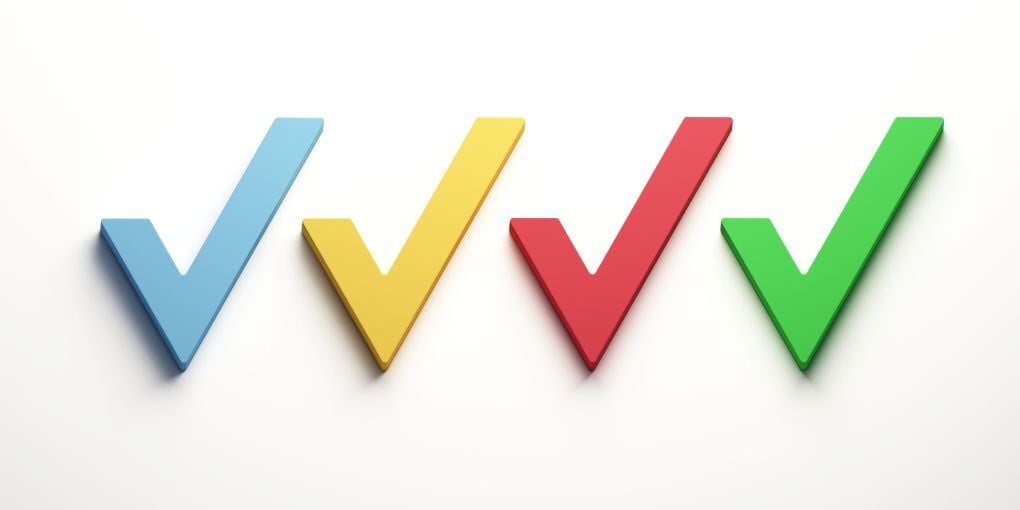After a recent investigation conducted by the U.S. Department of Labor's Wage and Hour Division, a Georgia-based manufacturer was required to pay $454,655 in back wages to 28 employees for failing to pay their workers overtime pay, deducting short rest breaks from their time cards, and for rounding their time outside of the parameters as required by the Fair Labor and Standard Act (FLSA).
A company in Bristol, Tennessee, was required to pay $195, 193 in back wages to 27 employees for incorrect classifications. The employer paid the workers at a lower rate as general laborers, when the work performed was that of skilled finishers, which required higher rates. The employer also failed to record and pay employees who also worked multiple positions for which different rates applied.
Do you know the minimum wage requirements where your company is located? How does your business record time? How do you classify employees doing multiple, or specialized tasks at multiple locations? It’s easy to see why the growth of wage and hour disputes has increased over the past few years and its now one of the primary areas costing small businesses.
IMPORTANT Q2 HR-RELATED TASKS
From record-keeping, regulatory reporting, mandatory employee training, and filing deadlines for state, federal and local tax compliance, the HR responsibilities of a small business continue to grow and grow – and change. Here are some of the most important HR-related tasks to address as we head into second quarter of 2019.
PAYROLL
Verify minimum wage and overtime pay laws. Federal law requires non-exempt employees to be paid a minimum wage of no less than $7.25 per hour. Many states also have minimum wage laws. Overtime is paid at a rate of one and a half times the regular pay rate after working 40 hours during a workweek.  At the beginning of the year, 19 states and 21 cities increased the minimum wage requirements – many reaching $15 per hour.
At the beginning of the year, 19 states and 21 cities increased the minimum wage requirements – many reaching $15 per hour.
Employee coverage, wage payments, compliance, as well as most exemptions are all determined based on a workweek. What is considered a workweek? According to FSLA, a workweek is defined as a period of 168 hours during seven consecutive 24-hour periods. It may begin on any day of the week and at any hour of the day determined by the employer. When it comes to minimum wage and overtime pay, each workweek must stand alone and two or more workweeks cannot be averaged together. To help employers stay up-to-date, the U.S. Department of Labor recently launched new compliance tools, including an enhanced digital Fair Labor and Standards Act (FSLA) Reference Guide with simple, easy-to-follow wage and hour information.
Update W-4 Forms. Update employee and new hire information, including W-4 and any state withholding tax documents.
Prepare Corporate Tax Returns. The deadline for 2018 corporate tax returns, Forms 1120, 112A, and 1120S and to request a 6-month extension, Form 7004, is March 15.
BENEFITS
Review your benefits plan. Follow up with your benefits broker to address any changes, new reporting requirements, deadlines, and to verify that health care reform requirements are met, such as quarterly disclosure notices for 401(k) plans.
File ACA Forms 1094-C and 1095-C. To file electronically through the IRS AIR System, employers must submit Forms 1094-C, the employer’s form, with copies of 1095-C, the employee form, by March 31.
COMPLIANCE
 Check OSHA Record Requirements. Each year, applicable employers are required to post a copy of a summary of work-related injuries and illnesses, OSHA Form 300A, from February 1 through April 30. The summary must be displayed in a common area where notices to workers are usually posted. Businesses with 10 or fewer workers and those in certain low hazard industries are exempt from OSHA record-keeping and posting requirements. Visit OSHA's site on record-keeping for more information.
Check OSHA Record Requirements. Each year, applicable employers are required to post a copy of a summary of work-related injuries and illnesses, OSHA Form 300A, from February 1 through April 30. The summary must be displayed in a common area where notices to workers are usually posted. Businesses with 10 or fewer workers and those in certain low hazard industries are exempt from OSHA record-keeping and posting requirements. Visit OSHA's site on record-keeping for more information.
Update workplace labor law posters. Check for changes in federal, state or local laws about specific labor law notices your business may be required to post on site. Post new compliance posters, update required pamphlets and wage orders, as necessary.
Audit employee records and Form I-9. Simple errors and incomplete forms can cost up to $1,100 per violation. Review and update employee records, including I-9 for new hires. Make sure inactive employees are termed in the system and full-time employees are correctly classified as full-time.
Prepare EEO-1 Report. Employees are protected under many federal laws and their rights are enforced by the U.S. Equal Employment Opportunity Commission (EEOC). Employers with 100 or more employees or federal contractors with 50 or more employees must submit an EEO-1 Report. The deadline was recently extended to May 31, 2019.
 Review employee handbooks. Review your company’s policies and procedures to ensure your business is in compliance with the latest changes in new employment laws. Make sure your employee handbook includes standards for conduct, policies for communication and privacy, compensation and performance reviews, social media, attendance, break periods, benefits, company-observed holidays, and procedures for termination, discipline, workplace safety, sexual harassment, inclement weather, and emergencies. If your business has locations in multiple states, it’s important to include supplements to your handbook with appropriate guidelines that apply to local and state laws.
Review employee handbooks. Review your company’s policies and procedures to ensure your business is in compliance with the latest changes in new employment laws. Make sure your employee handbook includes standards for conduct, policies for communication and privacy, compensation and performance reviews, social media, attendance, break periods, benefits, company-observed holidays, and procedures for termination, discipline, workplace safety, sexual harassment, inclement weather, and emergencies. If your business has locations in multiple states, it’s important to include supplements to your handbook with appropriate guidelines that apply to local and state laws.
Review required training deadlines. Review budgets and deadlines for required annual training sessions, such as for sexual harassment, and specific training, such as for blood-borne pathogens. Also check for industry-specific training and certifications requirements, such as for forklift operations and regulations for hazardous materials.
GENERAL HR
Review record retention requirements. The IRS requires employers to keep payroll and time records for 7 years. It’s just one example of the many documents that small businesses are required to keep. Develop a calendar and schedule of important records, review deadlines requirements and discard outdated records. Organizations, such as the Small Business Administration, offer free guides and best practices for record retention.
 Review succession and performance plans. Succession and performance plans prepare your business during transitions in leadership. It's also a good opportunity to identify, train and prepare those employees for future leadership roles.
Review succession and performance plans. Succession and performance plans prepare your business during transitions in leadership. It's also a good opportunity to identify, train and prepare those employees for future leadership roles.
Review budgets and staffing plans. While staffing plans are often developed during budget cycles, managing staffing needs and costs is an ongoing process.
Note: Because new laws, regulations and filing deadlines are ever-changing, please check with the appropriate organization or government agency for the latest information (Updated March 6, 2019).
NEED HR HELP?
We’ve got you covered with a helpful one-page checklist. On it you’ll find important HR tasks, related to payroll, benefits, compliance and general HR, to address by the end of second quarter, June 30, 2019. Depending on the type of business and industry, your list may be different and even more complex. If so, just contact us. By partnering with a certified PEO (CPEO), you gain access to a team of experts to help you navigate the complexities of your business, as well as help to stay compliant.










